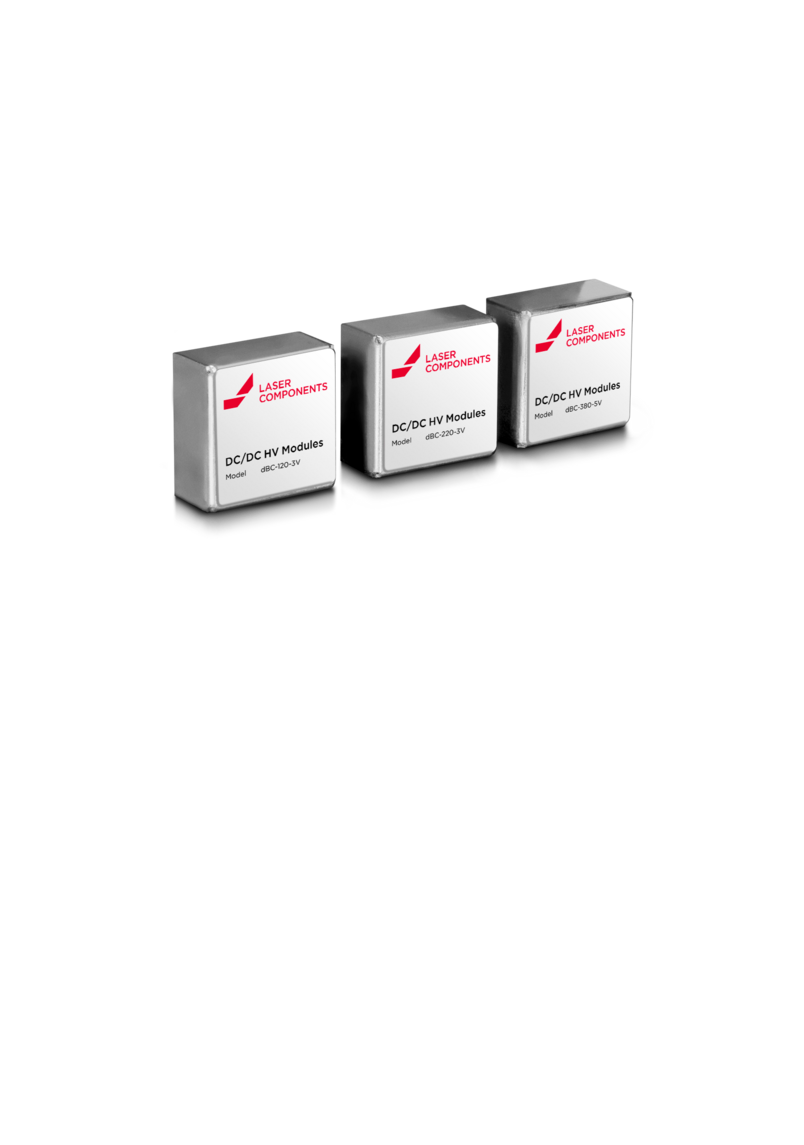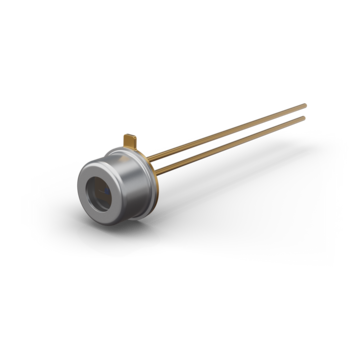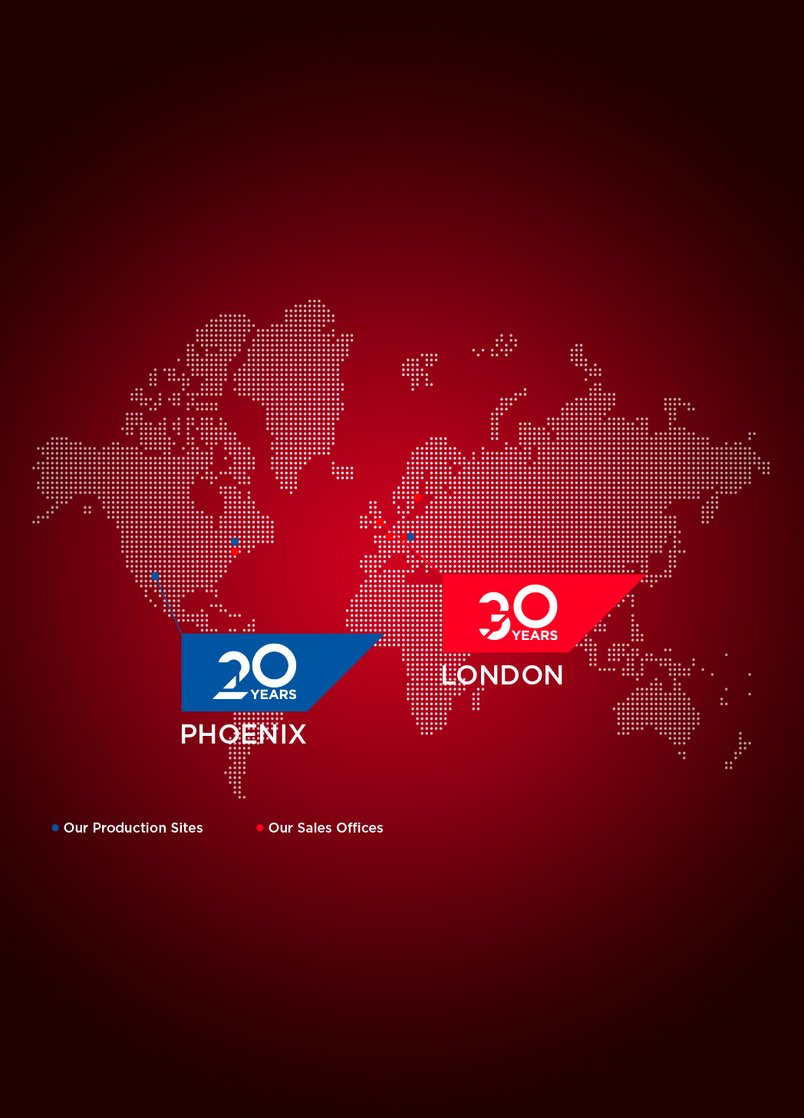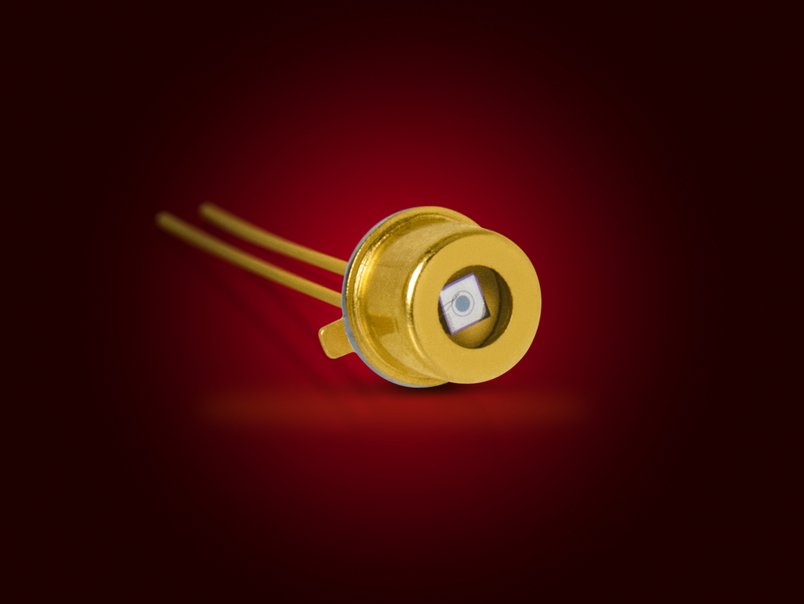InGaAs Avalanche Photodiodes
InGaAs avalanche photodiodes (indium-gallium-arsenide) detect in the spectral range from 1100 nm to 1700 nm. Compared to germanium APDs, InGaAs APDs have significantly better noise properties. In relation to their active area, they offer a higher bandwidth and advantages due to an increased sensitivity of up to 1700 nm.
IAG Series – Keep the Noise Down
The IAG series APDs can also be operated at an amplification factor of M=30. The noise in conventional APDs is so strong already at an amplification of approximately M=10 that it is nearly impossible to achieve efficient signal detection. Especially in applications with less intense ambient light, these detectors can be operated at a high amplification and their sensitivity increased significantly. For 3D scanners and rangefinders, for example, this means that a considerably larger measuring range can be achieved.
The IAG series APDs are available with active areas that have a diameter of 80 µm, 200 µm, or 350 µm.
Upon request, we can also provide these APDs as assemblies on a single-stage or two-stage thermoelectric cooler (TEC) in a TO-37 or TO-8 housing.
All APDs in TO-46 housings can be assembled with optical fibers.
IAL Series - The Cost-Effective Alternative
In many rangefinding applications a gain of M=20 is fully sufficient. In these cases, the InGaAs APDs of the IAL series offer a cost-effective alternative to the premium detectors of the IAG series. They are designed for wavelengths between 800 nm and 1700 nm and achieve a quantum efficiency of 70% across almost the entire wavelength range. Their peak sensitivity is obtained at the standard LiDAR wavelength of 1550 nm.
The IAL series APDs feature an active area of 200 µm and are available in the following package options:
- hermetically sealed TO-46 package
- SMD in M6 package
- With fiber pigtail
Contact
Benefits
- Reliable and efficient detection
- Customized versions available - also for small badges
Applications
- 3D Scanners
- Rangefinders
- Time-of-flight measurement
Information
about Avalanche Photodiodes
Semiconductor Materials
Similar to photomultipliers, avalanche photodiodes are used to detect extremely weak light intensities.
Si APDs are used in the wavelength range from 250 to 1100 nm, and InGaAs is used as semiconductor material in APDs for the wavelength range from 1100 to 1700 nm.

Click here
Accessories
Beyond Borders


With the inexpensive block modules from LASER COMPONENTS it is very easy to supply voltages up to several 1,000 V.
Customization
Beyond Borders
Let's Talk!


LASER COMPONENTS Germany GmbH
News & Events
Beyond Borders
LASER COMPONENTS Germany - Your competent partner for optical and optoelectronic components in Germany.
Welcome to LASER COMPONENTS Germany GmbH, your expert for photonics components. Each product in our wide range of detectors, laser diodes, laser modules, optics, fiber optics, and more is worth every Euro (€/EUR). Our customized solutions cover all conceivable areas of application: from sensor technology to medical technology. You can reach us here:
Werner-von-Siemens-Str. 15
82140 Olching
Deutschland
Phone: +49 8142 2864-0
Email: info(at)








